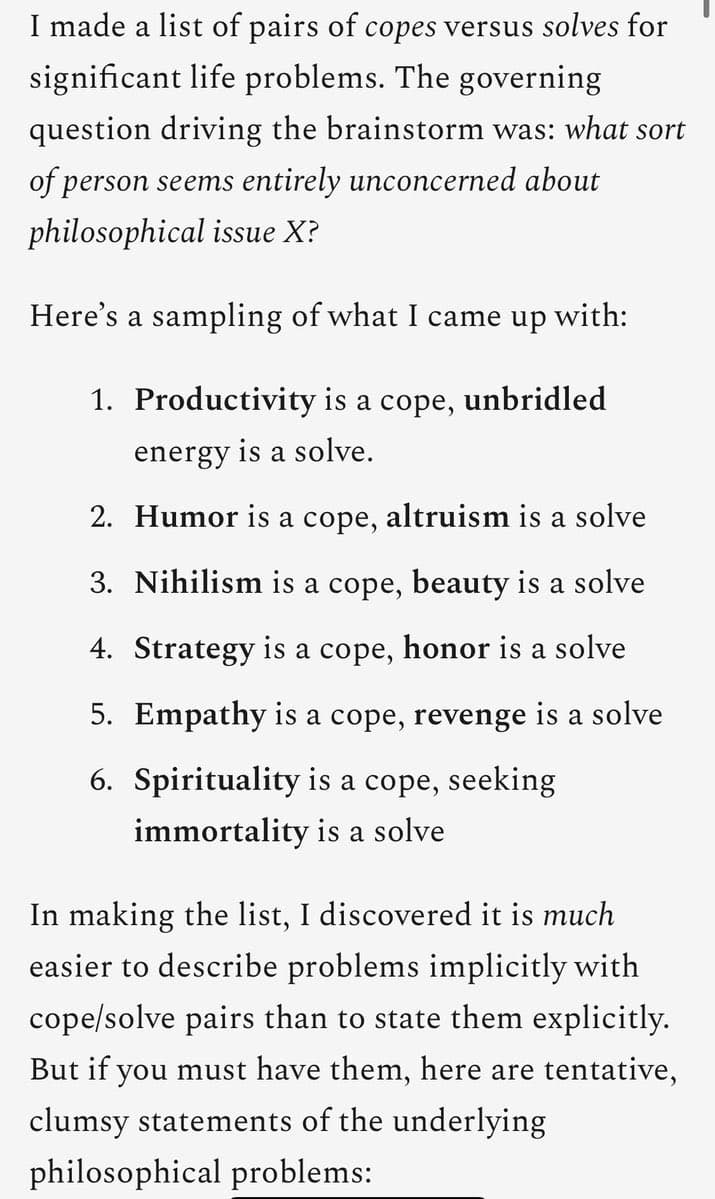🧵 View Thread
🧵 Thread (20 tweets)

To illustrate the difference between a cope and a solve: Strategy is cope. You’re trying to optimise something. Honour is a solve. Because when you have honour, you don’t *think about strategy* anymore. You’ve transcended it. https://t.co/FOqXNQXYeu https://t.co/zIK4L3MMJp


Your mind is spotless and clean. It doesn’t occur to an honourable person to strategise. They’re forgotten the frame in which it was a problem. They have transcended it. They have eliminated all sense of agency around it.

To someone who is content, they just 𝘭𝘪𝘷𝘦. You’d have to explain what a spiritual problem was for them to understand. “Ahhh, okay, so it’s like . . it’s a problem that . . ” When you have to have the problem explained to you, you have a solve.

- limited energy reserves, which you must spend, and apologise for not spending better - the impotence to just get what you want, hence you strategise - a spiritual issue; it occurs to you, the world is off somehow, so you philosophise

- Productivity people live as if they had unbridled energy / try to get there. - Spiritual people attempt to not care, in an attempt to look “maximally spiritual” (i.e., not care about it at all). - Strategy people read Thomas Schelling and cultivate honour.

The reason people coping usually don’t get to a solve, even when they try to increasingly approximate it, is because a solve usually requires a value set change. Whereas copers stick to their values and try to solve it by somehow just getting good at it.

They think with good enough tactics/strategy, they can get there, but no—they will just be optimising better Fwiw, this is often a good thing. If you really care about a value, like productivity, getting good at optimising it really does help you in the real world along its axis

Being spotless mind, blank slate, perfect embodied no thinky no problem is great, and also it’s not what could have single-handedly built the world we live in. Problems come from *values*, and if those values serve you, you are meant to keep them, and optimise/struggle away.

And if you can—for the 5% of problems in your life you don’t care about this way—you can execute a value set change and unperceive them. You can dissolve perceived problems it really doesn’t serve you to be perceiving anymore. Happy spotless sexy mind.